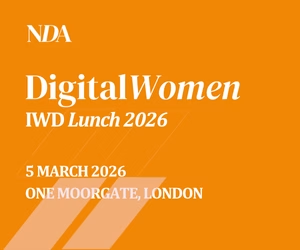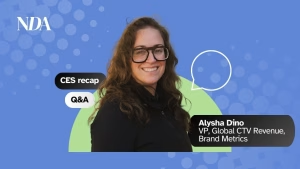By Jamie Ross-Skinner, Insights Director, ROAST
The realm of AI assistants is technically astounding, but at times it seems that the actual wants and needs of consumers are all but forgotten as the tech giants slug it out in a multi-billion-dollar model-measuring contest.
So, let’s get back to basics and look at some of the real insights we can glean around the human attitudes and feelings towards technology.
Do people actually want it? And, if so, what for?
Usage of AI Tools
Usage of AI tools has exploded since ChatGPT launched in November 2022 and in June of this year 38% of 16–64-year-old internet users reported using them weekly or more often.
There is now wide range of tools to choose from, but ChatGPT is far ahead of the rest of the pack with 42% reporting to having used it in the past month, followed by Google Gemini on 19%.
The main skill that people feel is improved by using AI tools is Research (24%), and the one that people think has been least improved is Empathy (4%).
When taking the same set of skills and asking consumers what they hope AI tools will become more useful for in the future, the two highest scorers are Problem-solving (39%) and Data analysis (37%). Interestingly Empathy (9%) scores lowest again.
Working in marketing, the ‘Data analysis’ point resonates. Only 14% say AI is currently useful for this skill and 37% hope that it will become more useful in the future. ChatGPT’s focus on this feature in their latest update shows an understanding of what some users really want.
Research is currently the top use for AI tools, but there is an understandable lack of trust of AI generated information, with people most likely to say they only trust the information that they gather through these tools ‘a little.’
Google’s longstanding status as the world’s trusted search engine gives them an advantage over ChatGPT in this area and they have built a function into Gemini which allows you to double-check AI results against Google search results.
Source: Screenshot from Gemini on a query of ‘what is the oldest building in London’ The text which has been highlighted green has been verified against Google search results.
Concerns about AI
Our newspapers and newsfeeds seem to be filled with polarised stories of how AI is going to bring us to the brink of either apocalypse or utopia, but it is encouraging to see that the majority of consumers have a more balanced view and are most likely to say that AI will have a ‘somewhat positive’ (35%) impact on society, followed by ‘neither positive or negative’ (26%).
However, there are two key AI implications that consumers find particularly concerning. The first of these is its potential impact on elections, about which 28% of consumers are ‘very’ or ‘extremely’ concerned.
The second area of concern, which is related to the first, is the impact of generative AI on news stories, about which 24% report being ‘very’ or ‘extremely’ concerned.
Looking ahead
Part of the job of an Insights department is to remind everyone else in the business that we all have a warped perception of life compared to the average consumer. One key quirk of our marketing-world echo chamber is that we are particularly obsessed with new technology (remember that whole metaverse thing?). AI is already impacting how we do our jobs and dominating the trade press, so it is sobering to see that the over-whelming reaction from consumers is one of cool indifference.
Many of the technical advances announced by Google, Open-AI and Apple are yet to be fully released, but as they are drip-fed to consumers, we will be keeping a keen eye on how they are being received and the implications that they will have for marketing and for society as a whole.
Note: All consumer data is from GWI’s Zeitgeist dataset, surveying 16-64 online consumers globally. Audience makeup varies across questions, but sample size tends to be 10,000+ across 10+ markets.










